The Best Parenting Books for Toddlers, Kids and Beyond
Alright, folks, now that we’ve graduated from pregnancy and newborn books, it’s time for the main event: books that explore parenting from every which way. Since there are so many wonderful parenting books for toddlers and kids, we’ve broken things down into separate sub-categories:
- General Parenting Books for Toddlers and Kids
- Behavioral and Discipline Books
- Books About Raising Adventurous and/or Environmentally-Conscious Children
- Books that Address Race and Challenge Gender Norms
- Books About Kids and Food
By the way — we love hearing your suggestions, especially since we’re constantly updating our picks, so let us know in the comments if there’s something you’d like us to add!
General Parenting Books for Toddlers and Kids
Bringing Up Bébé: One American Mother Discovers the Wisdom of French Parenting, Pamela Druckerman
It’s hard for me to express how much I love this book. I revisit it so often, honestly. Just read it — you will laugh, I promise, and also learn a lot about how overly anxious American parenting tends to be. [See also: Why (and How) to Be a Just Good Enough Parent.]
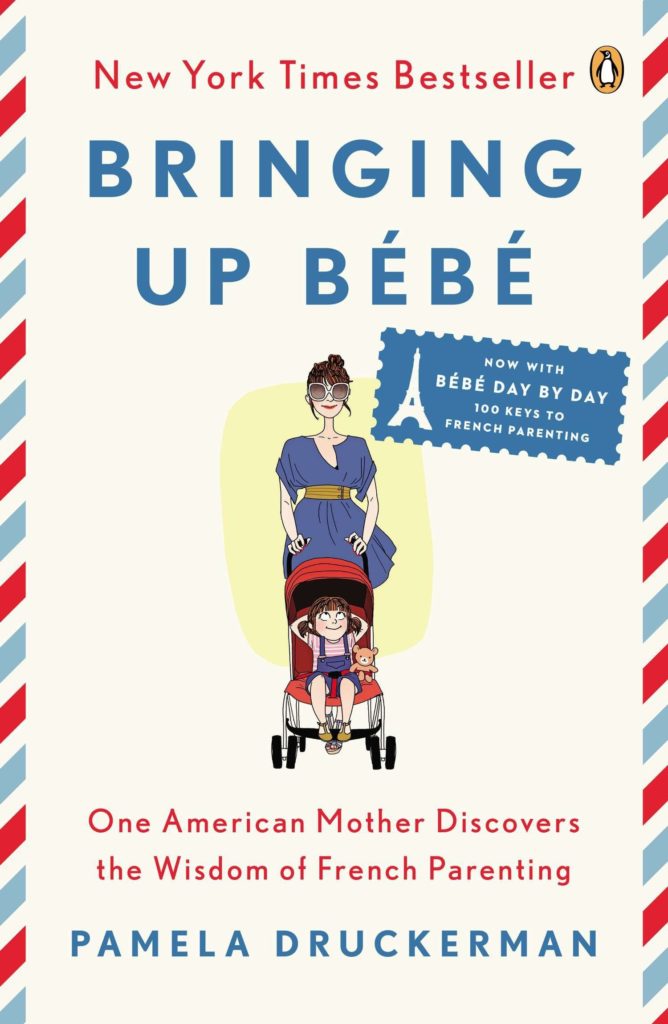

The Danish Way of Parenting: What the Happiest People in the World Know About Raising Confident, Capable Kids, Jessica Joelle Alexander, Iben Sandahl
This is a fun complement to Bringing up Bebe^^ (though it’s not quite as inspirational, IMO), except instead of honing in on cultural parenting norms in France (as Druckerman does), it focuses on — can you guess it? — Danish parenting customs. *It’s not just a gimmick, though — psychological studies actually indicate that children (and people in general, for that matter) in Denmark rank their happiness very highly (especially in comparison to here in the US, sadly, where children’s mental health is a burgeoning crisis…).
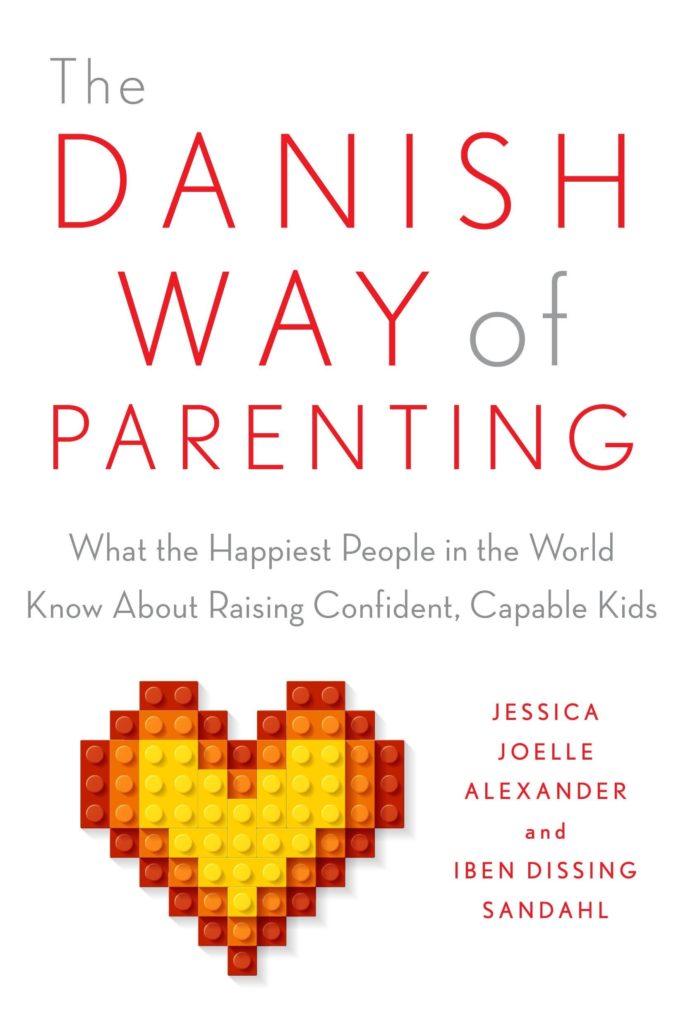

Pssst… another great complement to either/book of these books^^ is French Kids Eat Everything: How Our Family Moved to France, Cured Picky Eating, Banned Snacking, and Discovered 10 Simple Rules for Raising Happy, Healthy Eaters, by Karen Le Billon. It’s seriously entertaining and has tons of applicable tips relative to “food rules” — for everyone in the family.
A Book about Parenthood
All Joy and No Fun: The Paradox of Modern Parenthood, Jennifer Senior
I’m obsessed with this book — but it’s definitely not for everyone. A journalist’s take on how kids change parents’ lives (a much underexplored topic, IMO), this book is really about parenthood, rather than parenting. It’s rooted in research, interviews, and social science, and offers a (sometimes brutally) honest critique of the current state of being a parent.


Cribsheet, Emily Oster
We’ve already mentioned Emily Oster’s book in our infancy parenting book picks — but I’m mentioning it again here so it doesn’t get lost in the fray, because it’s not just a baby book. It tackles decision-making all the way up through preschool, in fact; and it’s a *highly-recommended resource for people who appreciate the application of data to parenting questions.
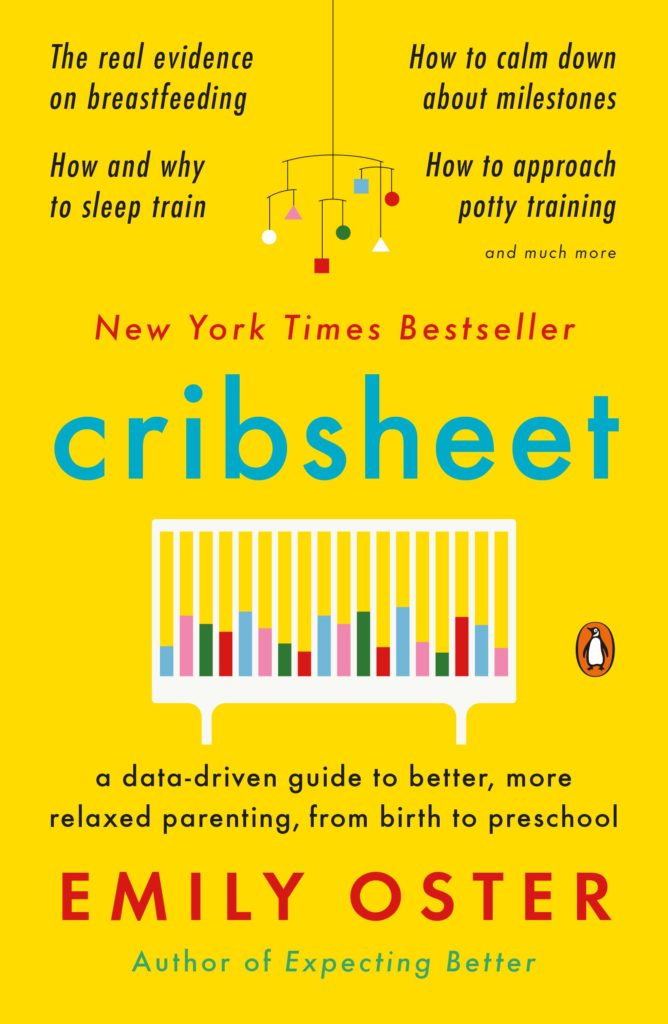

How to Talk So Kids Will Listen and Listen So Kids Will Talk, Adele Farver and Elaine Mazlish
The book that needs no introduction (but I will anyway)… This has been a bestselling classic for four decades now — that kind of lasting success doesn’t just happen by accident. This book has been called “the parenting Bible,” if that tells you anything, and one parent said: actually, kids DO come with a manual — it’s this! With chapters like “Helping Children Deal with Their Feelings,” “Alternatives to Punishment,” and “Praise,” this text combines no-frills explanation with practice exercises and boiler-plate takeaways. If you don’t find something of value in here… you’re the only one.
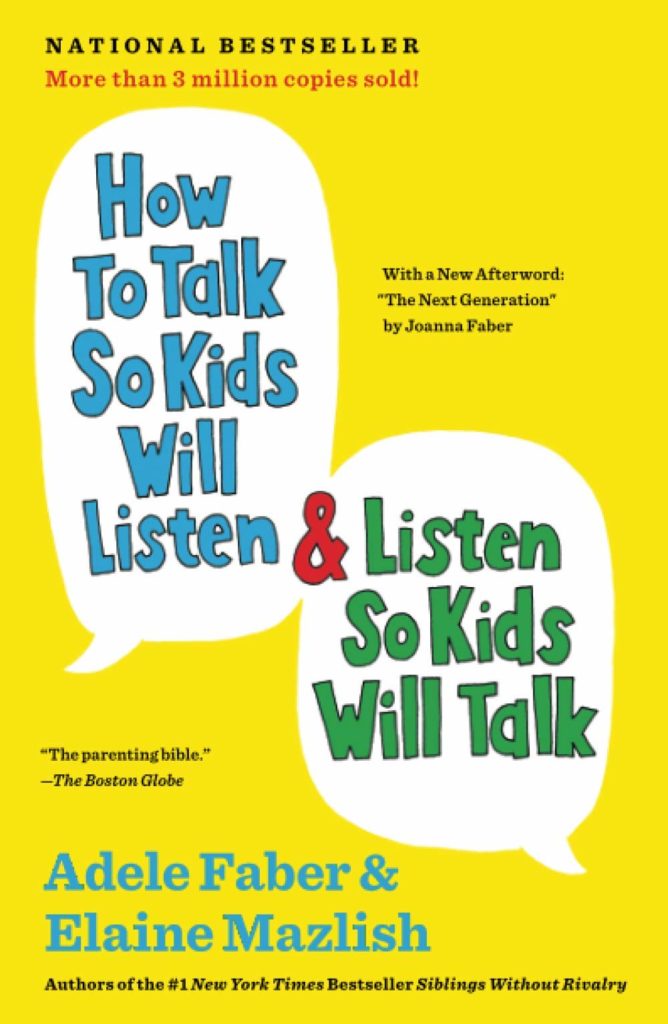

Behavioral & Discipline Parenting Books for Toddlers and Kids
Much like with books that profess they have the secret to getting your newborn to sleep in 7 days(!!) (incidentally there are also a lot of books that make similar claims about potty training puppies… huh), there are many, many books that spell out various approaches to discipline and how to respond to behavioral concerns. You may read any number of them and think — Yes! This is it! This will be us! — but in reality (and similarly to the books on infancy) most parents borrow from the methods of a few different “techniques” and create their own hodge-podge brand of disciplinary strategy.
This is what we recommend, too.
Psst — you can also take a peek at our Behavior Series, which includes a framework for discipline. (And by the way, one thing every book about discipline agrees on? Spanking is harmful.)
Happiest Toddler on the Block, Harvey Karp
Karp’s book is perhaps the easiest in the batch — a quick read with characteristic practical advice on tantrums and behavior management from the renowned pediatrician.
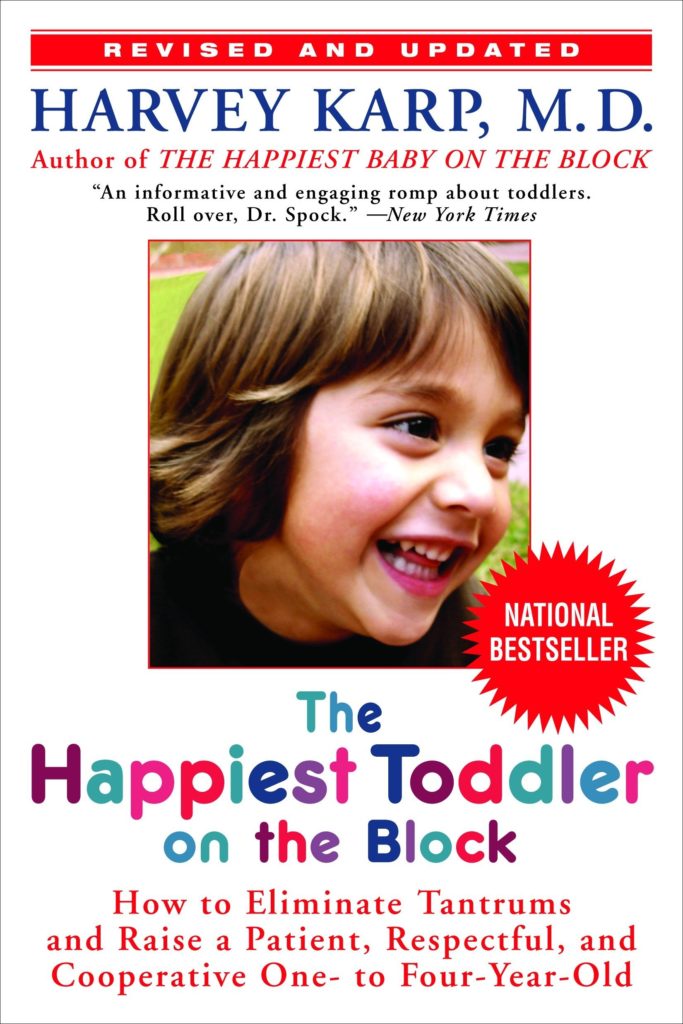

1-2-3 Magic, Thomas Phelan
This book seems to have a cult following. The basic premise is that implementing a counting system followed by real-time age-appropriate consequences can help reduce and/or interrupt unwanted behaviors.
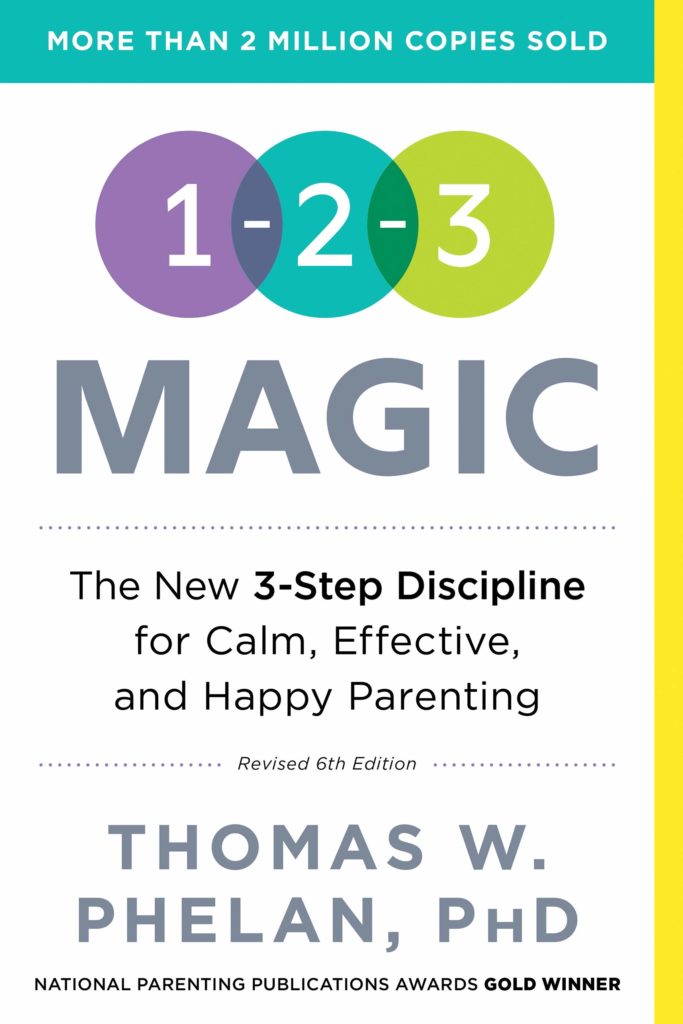

Raising Your Spirited Child, Mary Sheedy Kurcinka
We so highly recommend this book if you are the parent of a spirited child — whether they be energetic or “quietly spirited.” Melissa says that a friend and child therapist recommended it to her, and that it’s likely her most coveted parenting book of all time.
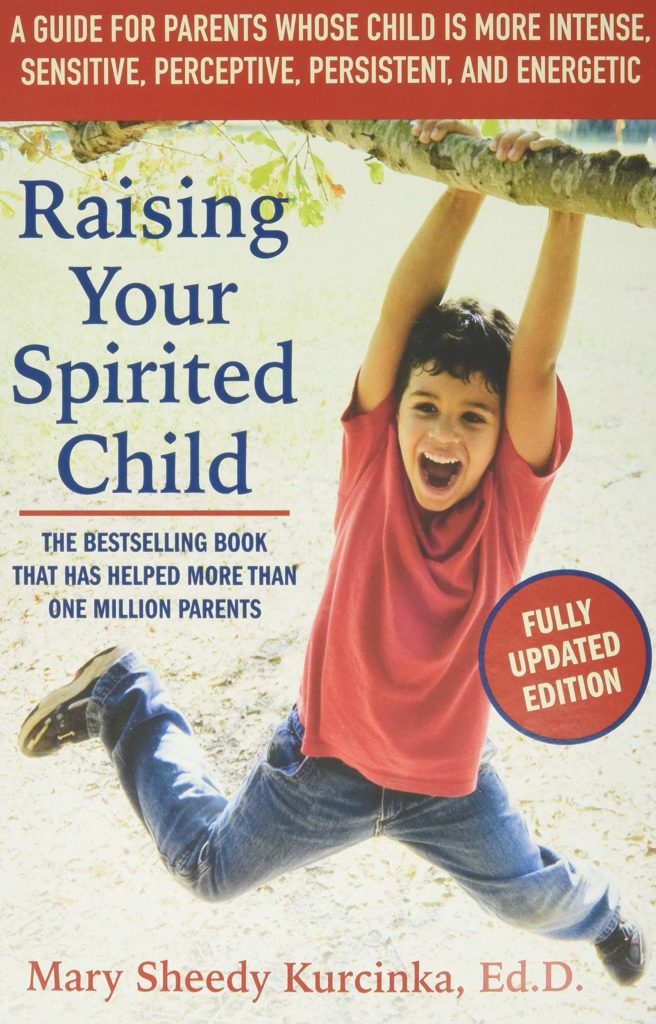

The Explosive Child, Ross W. Greene
This book provides a framework (“the collaborative problem solving model”) for responding to children’s explosions (you know them: kicking, tantruming, screaming, breaking things, yelling, etc.). If you have a child who is prone to overreactions or struggling to control their emotions, this is a frequent recommendation from pediatricians and therapists.
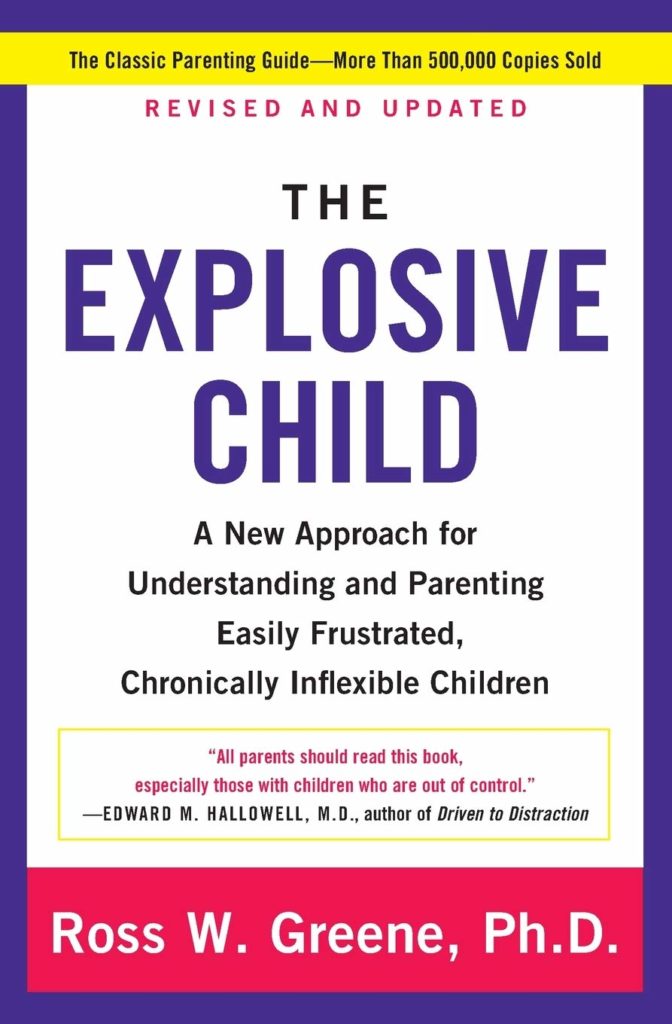

How to Stop Losing Your Sh*t With Your Kids, Carla Naumburg
I was a fan of Naumburg’s first book, Parenting in the Present Moment; her newest work is funny (ie, chapters are titled things like: “Shit You Have to Do If You Don’t Want to Lose Your Shit”) and eminently helpful. Naumburg’s approach to “discipline” (or whatever you want to call it, exactly), is to focus on US — parents. This makes sense, but it’s not necessarily intuitive (much the same as how our concerns about our kids’ screen time ultimately relate back to OUR screen time). The basic premise is this: “every time you manage to stay calm instead of freaking out, you create space to respond thoughtfully and parent the way you want to — however that looks for you and your family.” Doesn’t that sound nice?
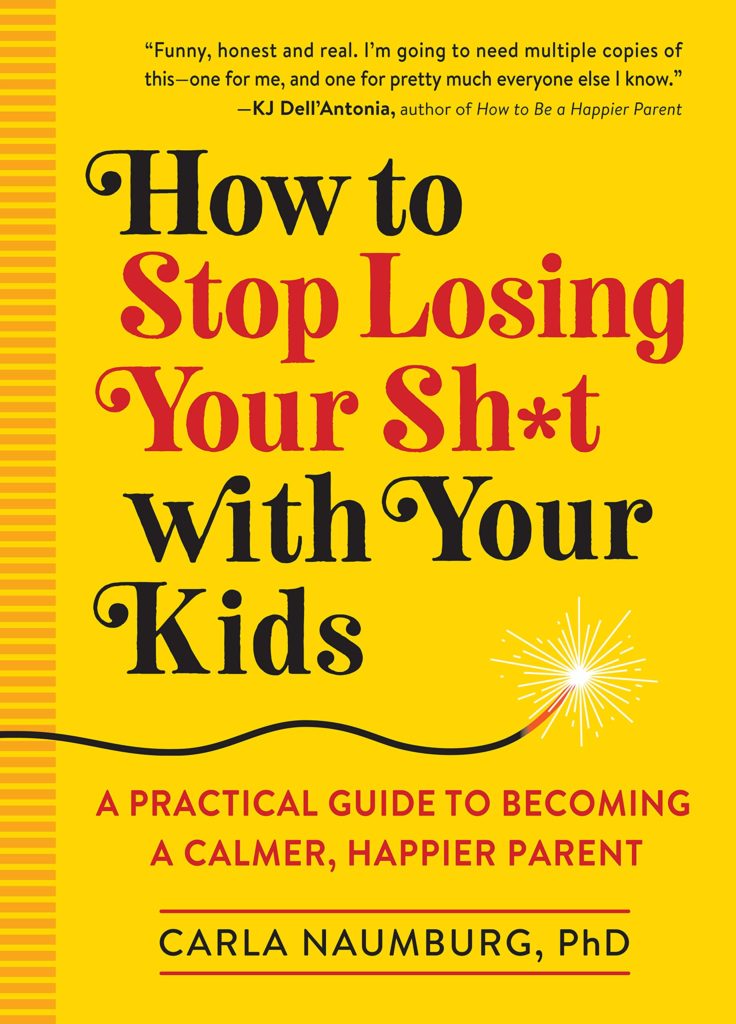

The Whole Brain Child, Daniel J. Siegel and Tina Payne Bryson
If you prefer your parenting books served up with a side of brain science, this one is for you — it’s part primer on pediatric neurological development and part disciplinary how-to guide.
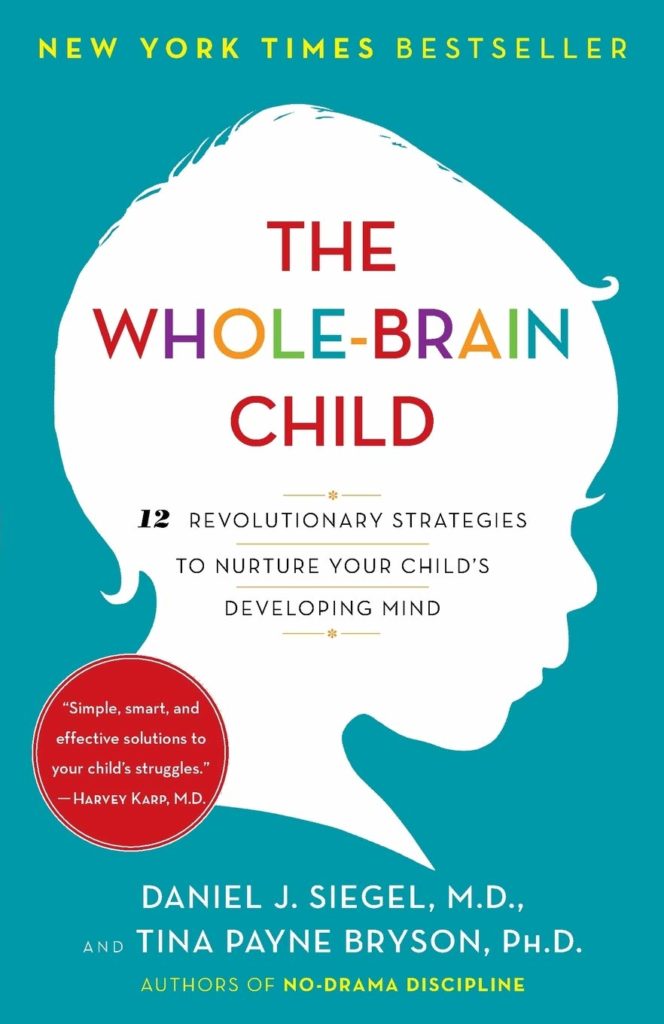

No Drama Discipline, Daniel J. Siegel and Tina Payne Bryson
The follow-up text to The Whole Brain Child, this book focuses more on the practical side of discipline strategies. Spoiler alert: the authors’ focus is on connection, love, and empathy over punishment.
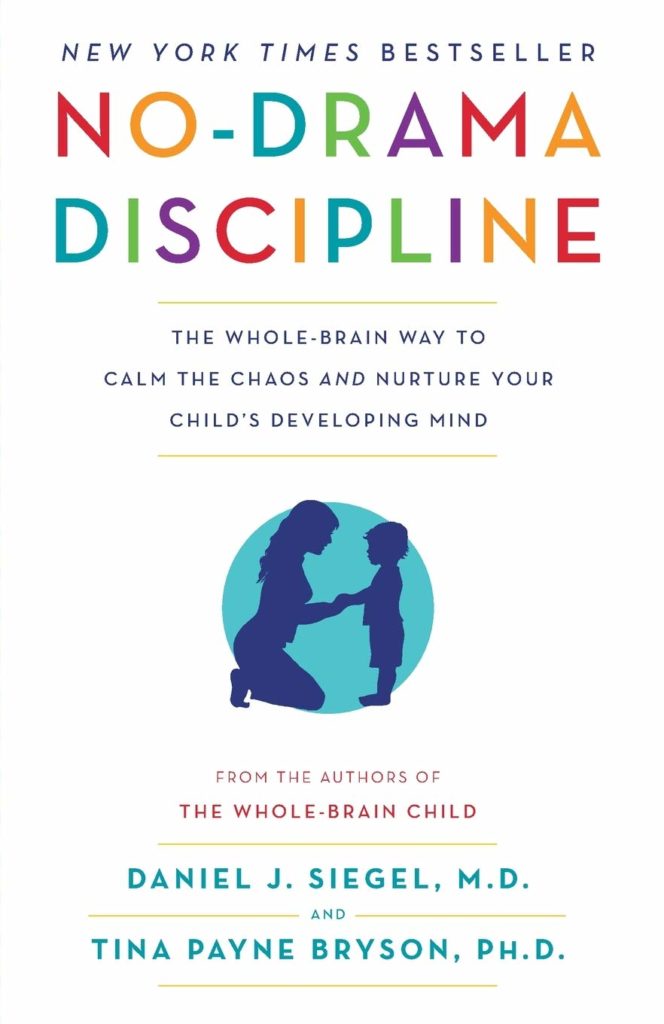

Simplicity Parenting, Kim John Payne & Lisa M. Ross
There is something about this book that reminds me of Marie Kondo. It has a sort of spiritual take on “the grace of childhood,” which usually causes me to roll my eyes, but the practical advice here on turning down the crazy-overpacked-too loud-and-distracted family life that seems to burden so many of us is both welcome and refreshing.
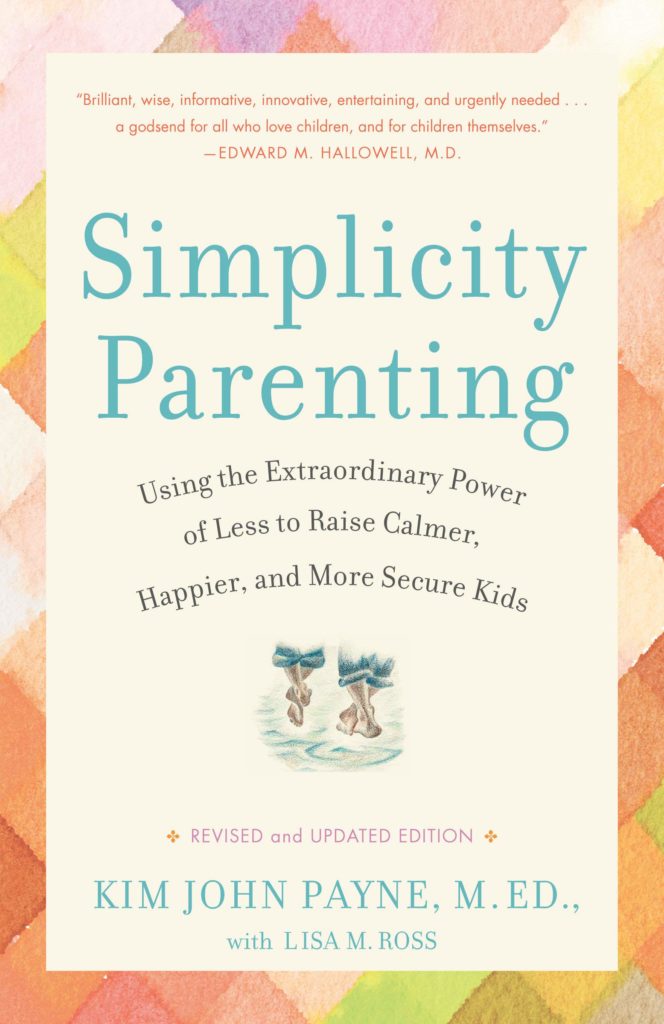

Books About Raising Adventurous and/or Environmentally-Conscious Children
There’s No Such Thing as Bad Weather, Linda Akeson McGurk
This book explores the Scandinavian cultural precept that “there’s no such thing as bad weather, only bad clothing” — a la Bringing Up Bebe. Part memoir, part social science reader and part tactical guide, this is a wonderful read for families looking for more ways to connect with the outdoors. Something we all need, these days.
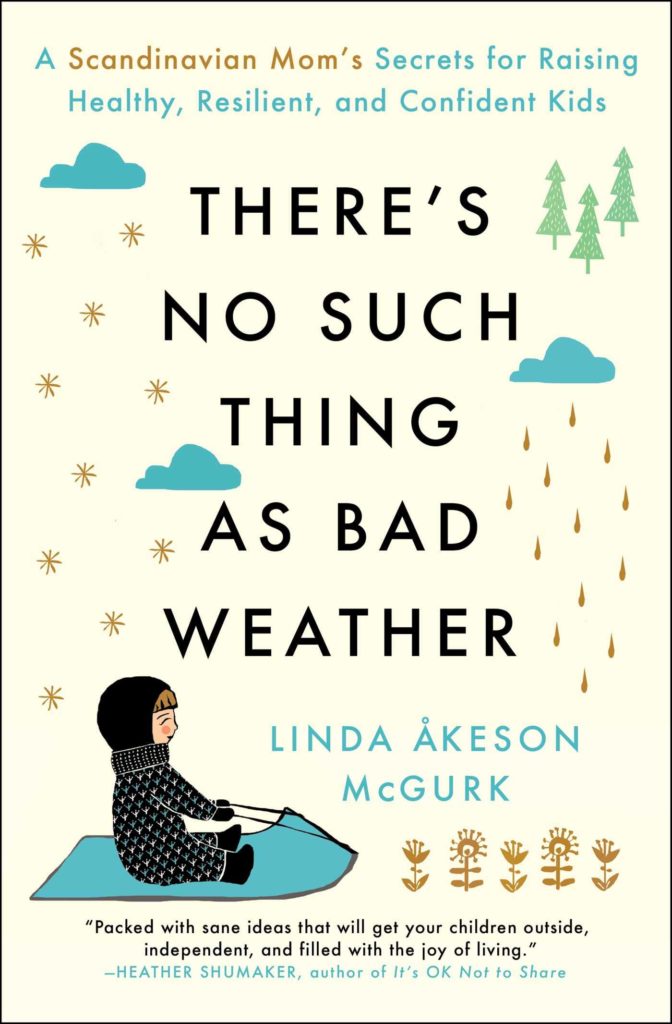

Last Child in the Woods, Richard Louv
This book explores how our children’s dwindling relationship with nature and the natural world is problematic — and offers some inspiration and advice for how to reclaim a childhood experience that features the outdoors (to everyone’s benefit).
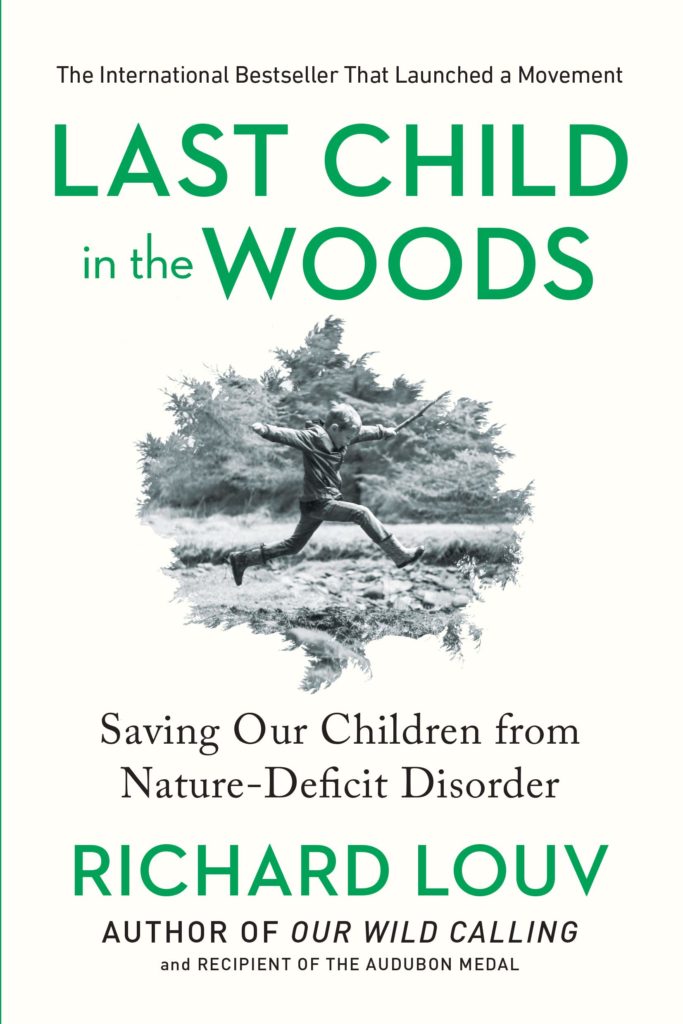

How to Raise an Adult, Julie Lythcott-Haims
This book is a manifesto denouncing overparenting. Lythcott-Haims’s overarching argument is that overprotective parenting comes at a heavy cost — for both our children and our society. Rich with research, data, and real-life examples, this book advocates that we jettison our need to raise “successful” children and instead aim to raise confident, capable, independent children.
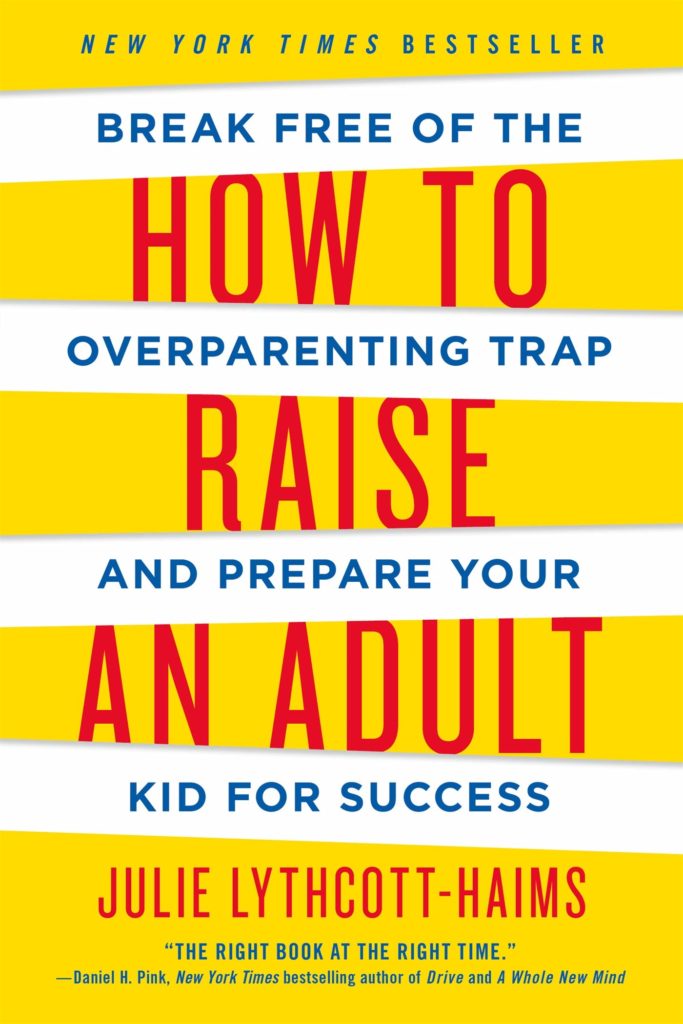

Parenting Books that Address Race and Challenge Gender Norms
Unequal Childhoods, Annette Lareau
This is an academic book, and it reads like one — but if you’re up for some heavy lifting in the reading department, it’s incredibly eye-opening. Unequal Childhoods describes the author’s sociological study of children’s upbringing across class lines, and delineates the profound effects of socioeconomic class on childhood.
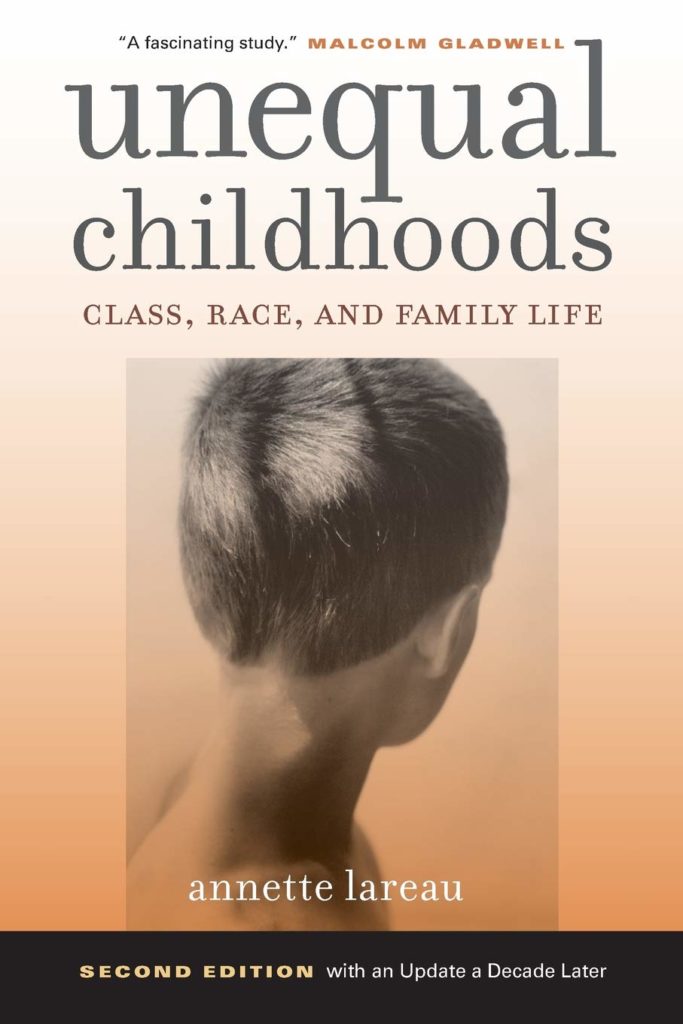

Dear Ijeawele, or A Feminist Manifesto in Fifteen Suggestions, Chimamanda Ngozi Adichie
“A few years ago, Chimamanada Ngozi Adichie received a letter from a childhood friend, a new mother who wanted to know how to raise her baby girl to be a feminist. Dear Ijeawele is Adichie’s letter of response: fifteen invaluable suggestions — direct, wryly funny, and perceptive — for how to empower a daughter to become a strong, independent woman.” Whether you have a daughter or a son, this slim volume is a must-read. (*If you prefer to listen, the audiobook is just an hour — the same length as a longform podcast.)
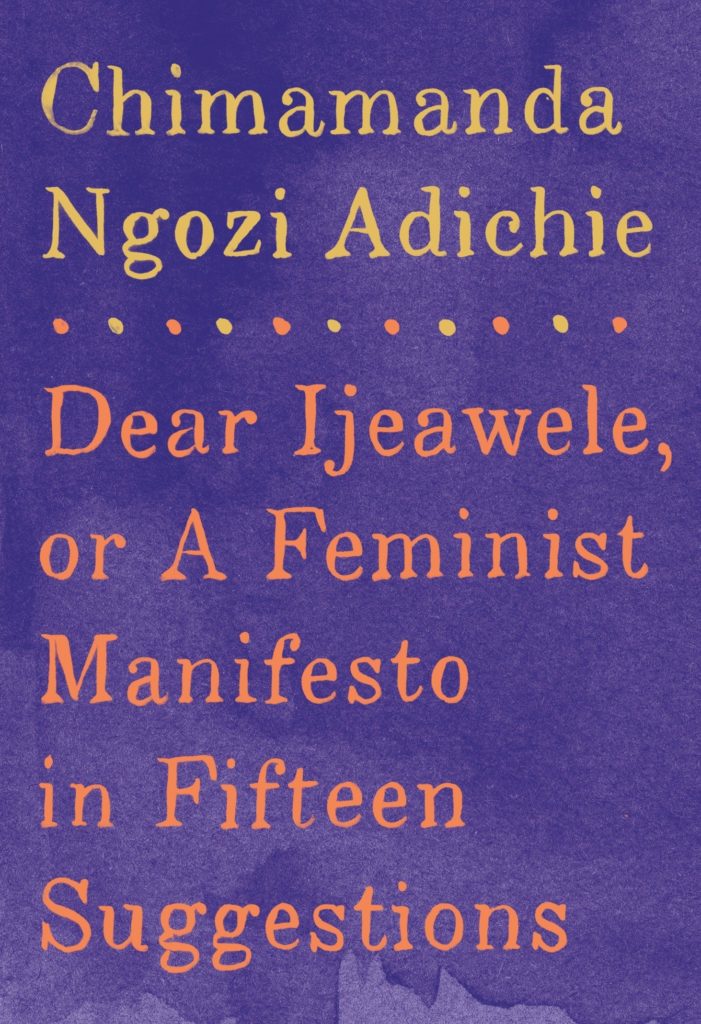

Parenting Beyond Pink and Blue, Christia Spears Brown
Written by a professor of developmental psychology, this book tackles the ways in which gender stereotypes negatively shape children’s development. Brown argues that though there are some differences, boys and girls are much more similar than most of us think, and that they only grow to be truly different after so many years of imposed gender expectations. One of this book’s greatest strengths is simply to prompt us to recognize our own gender biases and be better prepared to intervene on them.
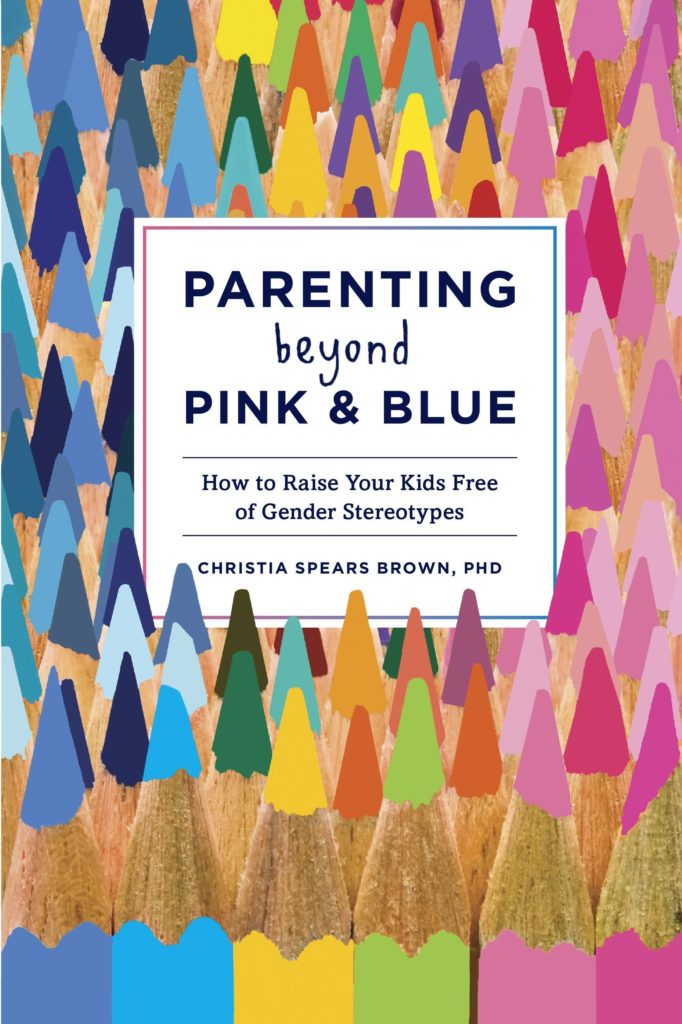

*Please note — as many readers comment, this book^ does not delve into non-binary and trans children, nor homosexuality. Numerous reviewers take issue with this, but we still think the book is worthwhile as long as you know this headed into it.
Although it’s a novel, This Is How It Always Is, by Laurie Frankel, truly changed the way I think about parenting and simply existing as a citizen in the world today. A story about a family raising a trans-gender child, it’s touching, powerfully real, and compelling. I think everyone should read it…
We Live for the We: The Political Power of Black Motherhood, Dani McClain
“In We Live for the We, first-time mother Dani McClain sets out to understand how to raise her daughter in what she, as a black woman, knows to be an unjust — even hostile — society.” Reviewers have hailed McClain’s resultant project, this book, as “deeply researched, compassionately reported, and soaring with beauty and urgency”; “more than a reimagining of motherhood… an equally soulful and skillful immersion into the questions of how we go beyond survival in a nation intent on the suffering of Black mothers and their children”; and “a must read for all Black mamas and our allies.”


Motherhood So White: A Memoir of Race, Gender, and Parenting in America, Nefertiti Austin
This book recounts Austin’s story of single black motherhood through adoption. It’s candid, critical, and moving. As KJ Dell’Antonia of the NYT wrote: “Motherhood So White blew me away. Nefertiti’s honest account of her unique journey to parenthood serves as a sharp reminder that in our society, parenting is not a colorblind experience. This is an important book for anyone committed to creating a more equal playing field for all our children.”
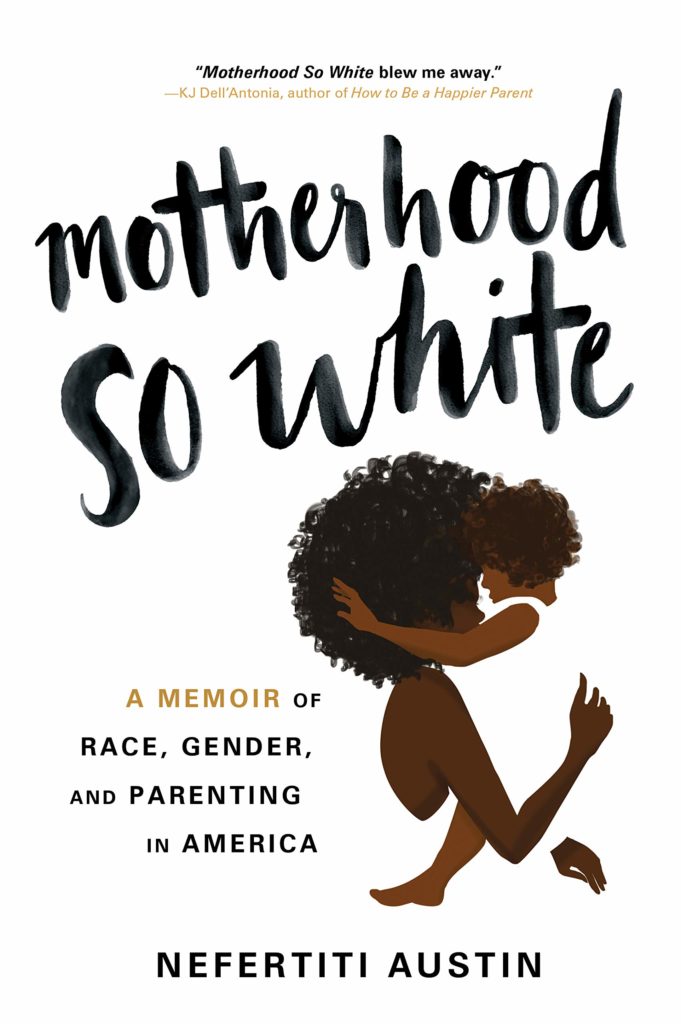

Between the World and Me, Ta-Nehisi Coates
If you haven’t heard of this book, where have you been living? Between the World and Me is an epistolary from Coates to his teenage son. It’s part memoir, part love letter, and part visceral critique of the American “dream.” It’s also historically informed, compelling and emotional. It’s not a parenting book, per se, but we think it should be on every parent’s reading list.
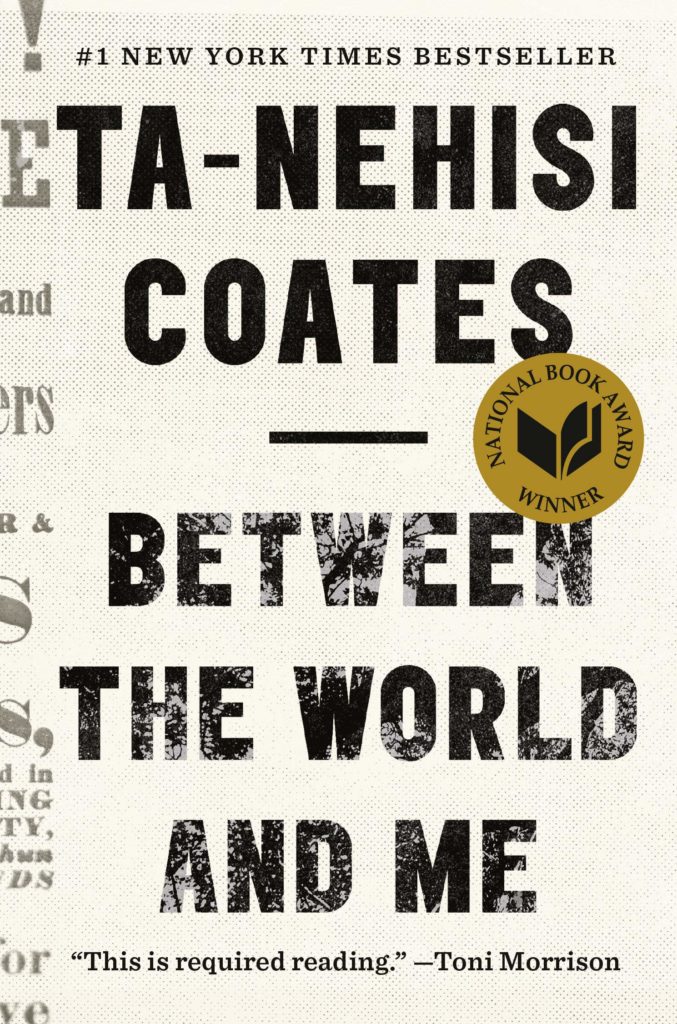

Raising Cain: Protecting the Emotional Life of Boys, Dan Kindlon and Michael Thompson
Written by two child psychologists, this book highlights the ways in which our culture’s dominant masculine stereotypes strips boys, starting at a young age, of emotional literacy. Raising Cain calls gender norms into question (something which we readily accept as important for raising confident, independent girls, but often overlook when it comes to boys) and promotes cultivating communication skills and empathy among our boys. Though, as many readers point out, the book is better at pointing out problems than at offering hands-on strategies for overcoming them.
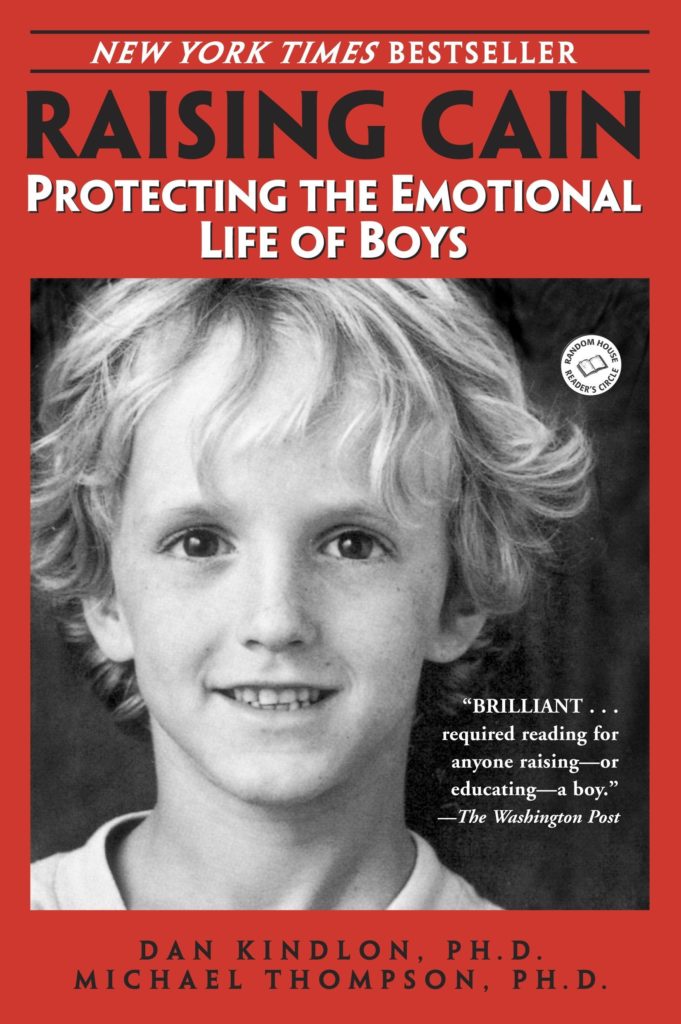

How to Raise a Boy: The Power of Connection to Build Good Men, Michael C. Reichert
This book offers insight and advice on how to raise sons against the grain when it comes to the normative male gender scripts. (As one reviewer described it, this book is a “thoughtful, honest, and ultimately hopeful map for raising a son today.”) Not surprisingly, the book focuses on building healthy, open relationships and resisting the dominant gendered expectation that boys “man up.”
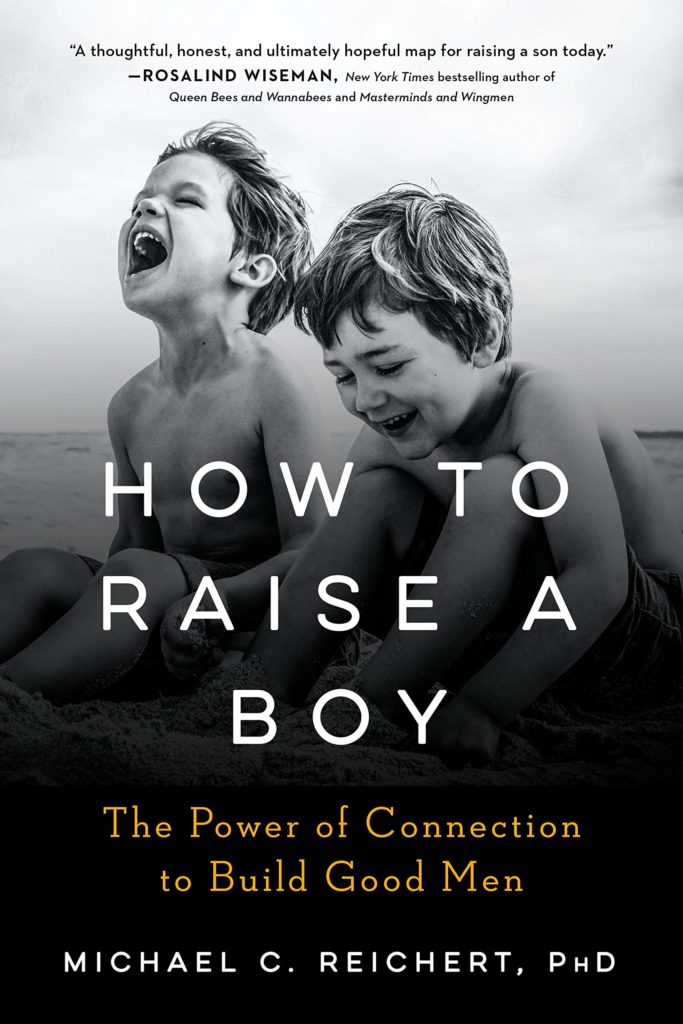

How to Raise an Antiracist, Ibram X. Kendi
Equal parts memoir, philosophical guide, and how-to book, this new title from Ibram X. Kendi is as honest as it is deeply researched. With straight talk about difficult issues and a call to action that will resonate with every family, this is a compassionate handbook for raising antiracist children.
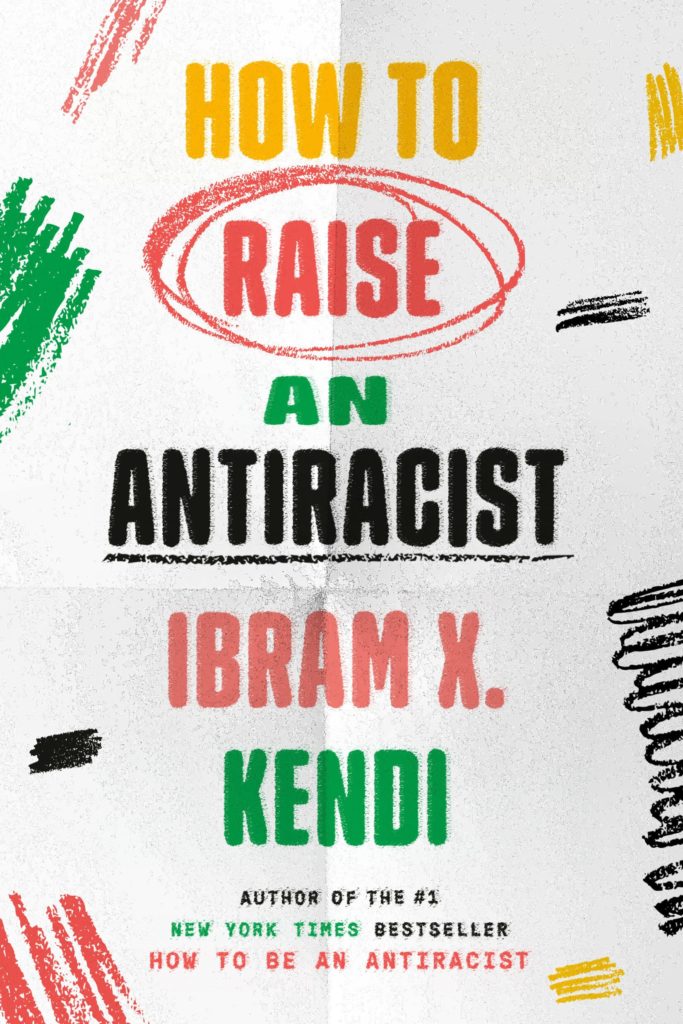

Books About Kids and Food
Okay, friends, we saved the best for last — food books, hah! I LOVE reading about food and food culture. It’s the best! But even if you don’t share my strange enthusiasm for the topic, most parents find themselves in need of some help/guidance of some sort, at one point or another, when it comes to feeding their kids. These books all focus on the topic of “how to feed our children well,” from a broad range of perspectives. Whether you’re looking for strategies to manage picky eating, want to learn more about what to feed your kids (or how), or you like learning about the science of early childhood nutrition or the food industry, one of these is sure to fit the bill. 😉
We also have our own Toddler Feeding Guide!
Child of Mine: Feeding with Love and Good Sense, Ellyn Satter
Satter is sort of the godmother of the “how to feed your children well” literature. She’s the creator of the “division of responsibility” framework, which says this: parents decide WHEN kids eat, WHAT kids eat, and WHERE to serve it… and children choose all the rest. Child of Mine is a meditative and helpful exploration of both the benefits of this basic principle as well as how to apply it successfully in your own home. (BTW, nearly every one of the “how to” books here borrows from Satter’s philosophy.)


Fearless Feeding: How to Raise Healthy Eaters from High Chair to High School, Jill Castle and Maryann Jacobsen
Fearless Feeding is an easy-to-use reference text on nutrition from toddlerhood through late adolescence/early adulthood. It’s a super helpful book to have around especially if you have multiple children, because it also delves into how various kids are primed to eat at various ages and stages. (IOW, the authors outline recommended approaches to feeding according to your child’s developmental stage.)
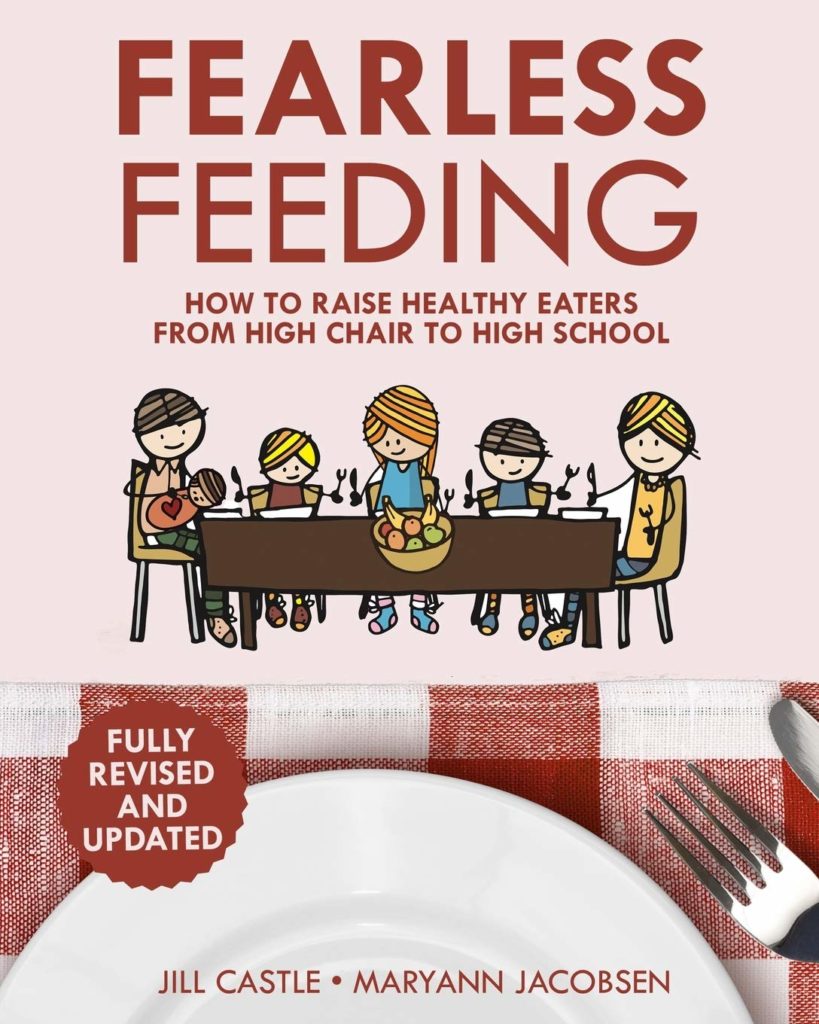

Cross-Cultural Memoirs That Speak to Feeding Kids
Each of these three books follows a similar script: a mom moves somewhere foreign, then writes about her experience raising her baby/kids in a completely new culture. They are all funny, relatable, a joy to read, and speak to various elements of childhood food culture. Whether you read just one or read them in conjunction (book group, eh?), they all inspire an overhaul in how we approach food with our kids and for ourselves. Bon appetit.
The Lost Art of Feeding Kids: What Italy Taught Me about Why Children Need Real Food, Jeannie Marshall
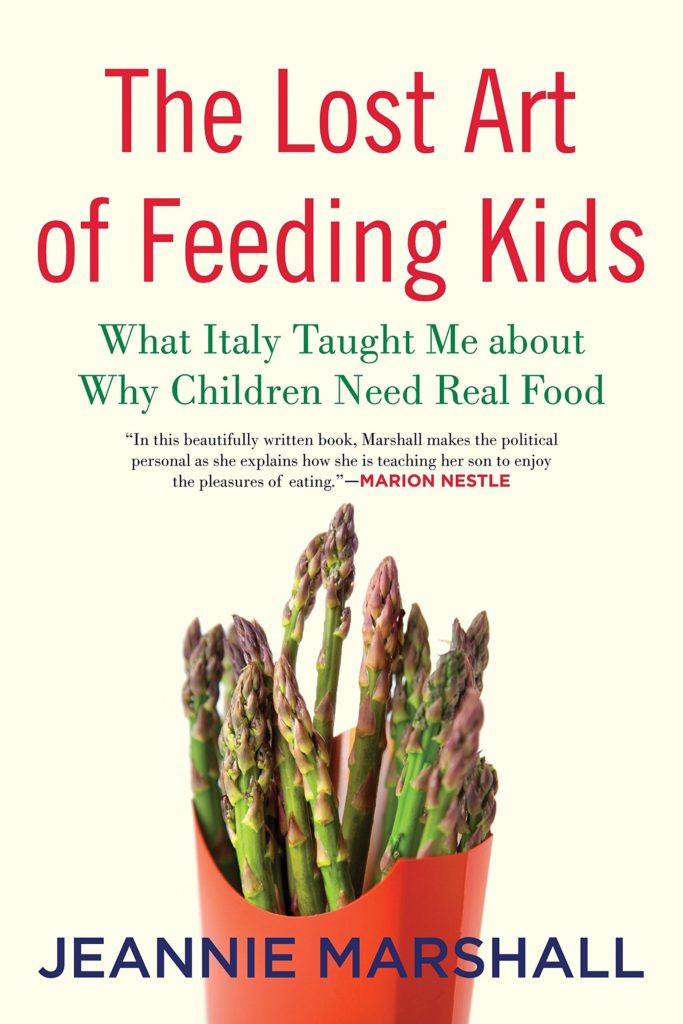

French Kids Eat Everything: How Our Family Moved to France, Cured Picky Eating, Banned Snacking, and Discovered 10 Simple Rules for Raising Happy, Healthy Eaters, Karen Le Billon
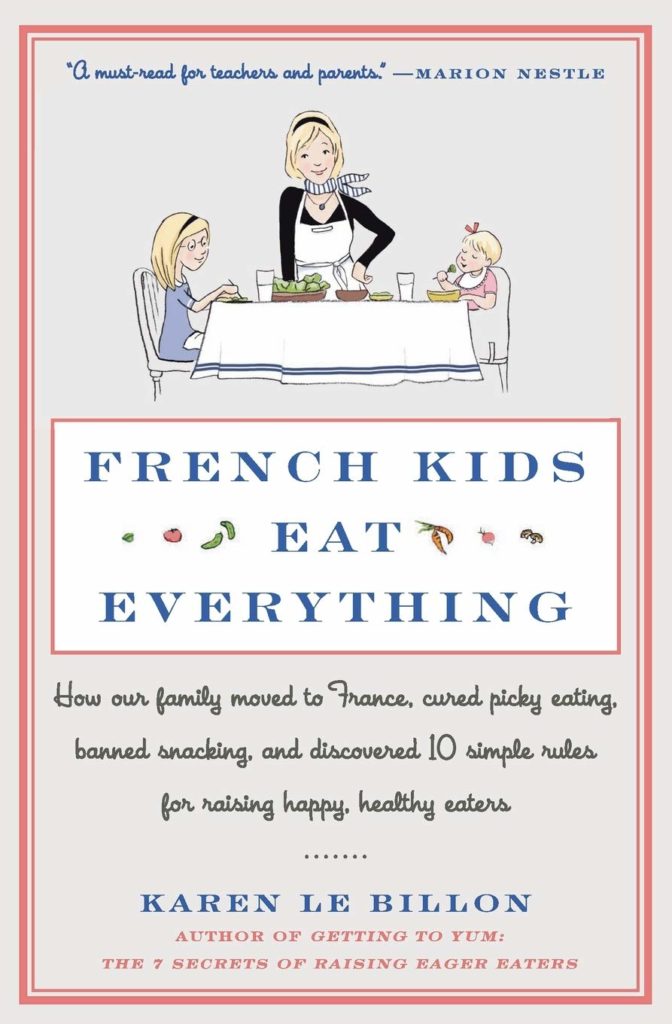

Bringing Up Bébé: One American Mother Discovers the Wisdom of French Parenting, Pamela Druckerman
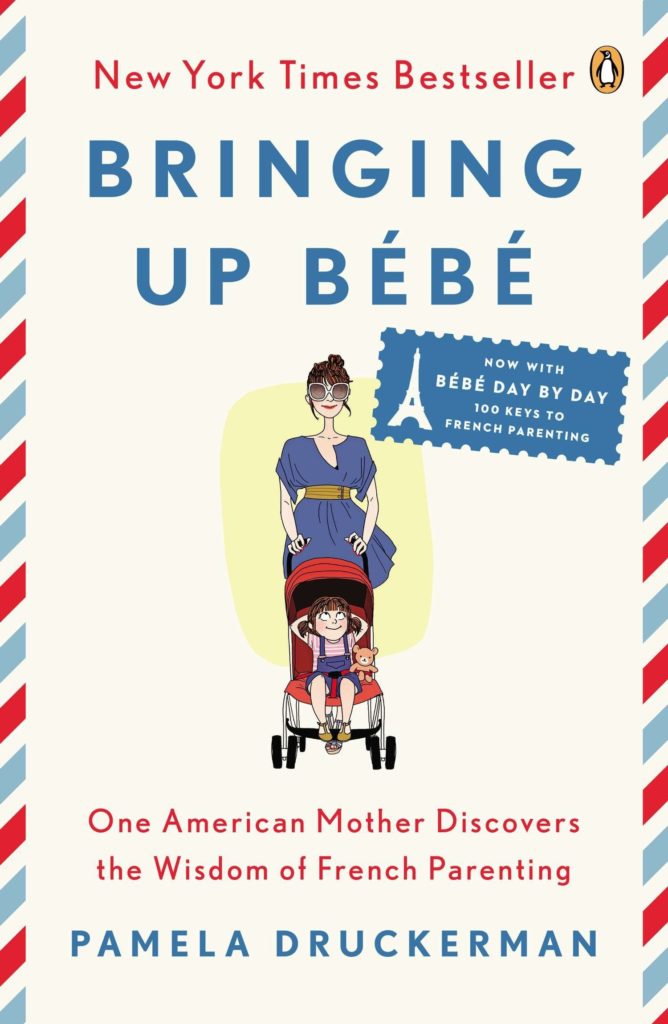

Helping Your Child With Extreme Picky Eating, Katja Rowell and Jenny McGlothlin
Therapists frequently recommend this book, and most parents say it’s offered them some useful strategies for overcoming picky eating — for some, it’s just one or two things, and for others it’s a goldmine. If you are struggling with a picky eater, this is definitely worth checking out.
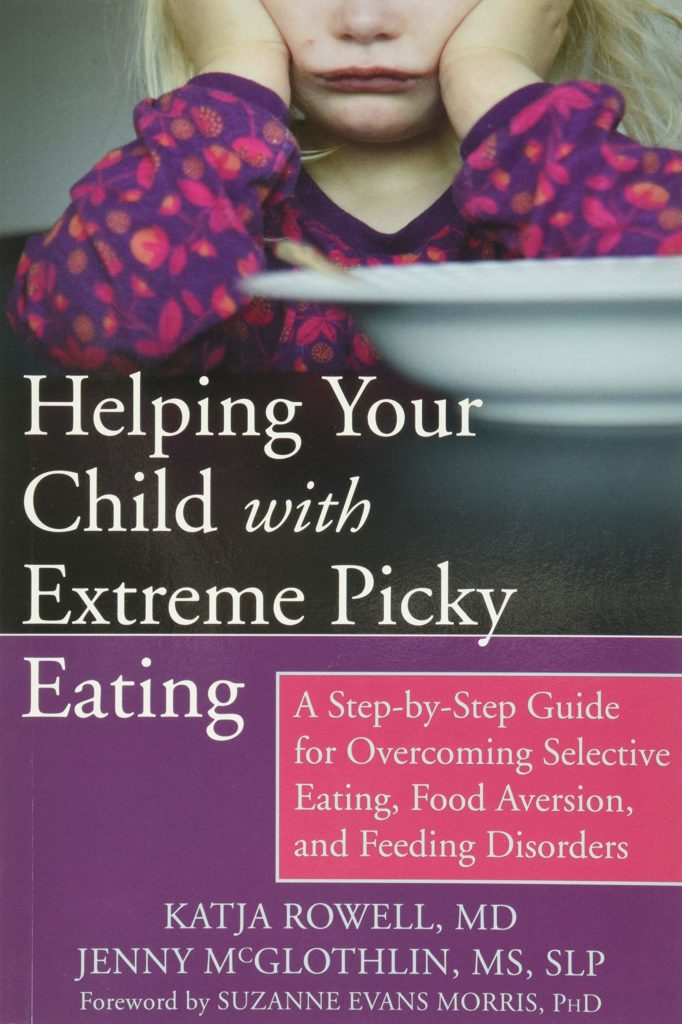

Kid Food: The Challenge of Feeding Children in a Highly Processed World, Bettina Elias Siegal
Siegal casts a wide net in her investigation into the universal American parenting struggle to feed children well. Her book is equal parts an indictment of certain aspects of the food industry and of food advertising, a thought-provoking call to action, and a how-to for parents invested in changing the way we (all) feed our kids.


It’s Not About the Broccoli: Three Habits to Teach Your Kids for a Lifetime of Healthy Eating, Dina Rose
This book from sociologist Dina Rose is as refreshing as it is profound. Rose’s three habits to teach are proportion, variety, and moderation, and her overall take when it comes to eating is that parents should focus on behaviors rather than nutrition. As one reviewer describes, this book “shows parents how to get out of the nutrition trap in order to teach their kids to eat right.”
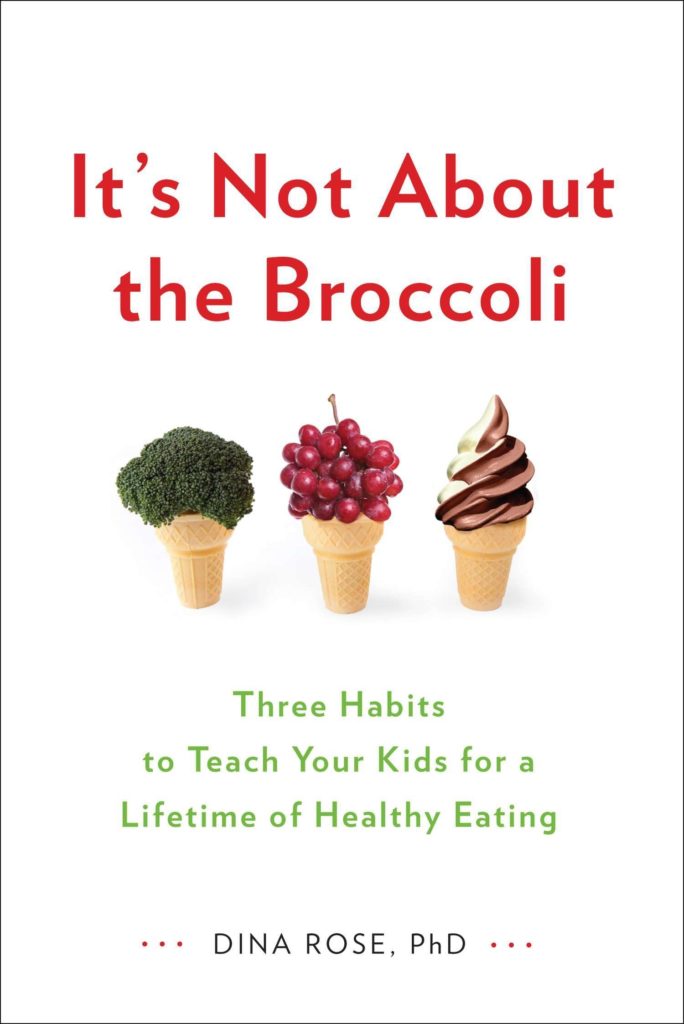

First Bite: How We Learn to Eat, Bee Wilson
I so love this book about how humans learn to eat. It packs nutrition science, psychology, cultural analysis, and history all into one to explore how we develop eating tastes, preferences and habits — and how we can relearn them. (Psst— Wilson also appeared for an interview on NPR’s Fresh Air to discuss First Bite, which many people think is a great alternative if you’re not quite ready to commit to the whole book.)


Whelp… this^^ should all keep you busy for a while. Talk to you in five years.
JKJKJK… let us know what you’re reading!
Hello!
I have ordered several books from your book but I am looking for one on separation anxiety in littles. Do you have any recommendations? Thank you!